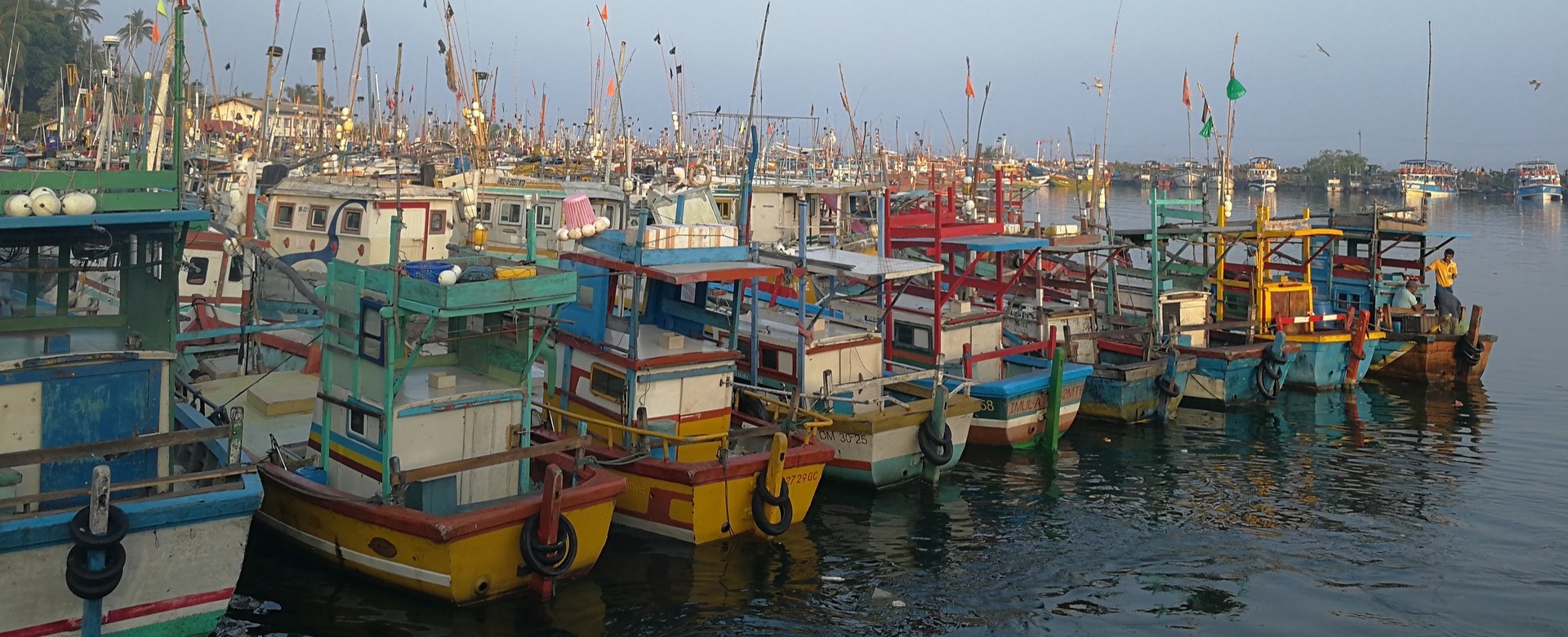ERC led a pilot study of Abandoned, Lost and Discarded Fishing Gear (ALDFG) in Sri Lanka. This included the design and implementation of a
robust methodology aimed at delivering an initial assessment of ALDFG in Sri
Lanka based on a sample of fisherfolk and the analysis of the results. As a pilot the
effectiveness of the methodology was reviewed to identify lessons learned and areas for
improvement and recommendations and areas for further work were made. This has
been published as an academic journal paper
ERC subsequently carried out a
national baseline assessment of ALDFG in Sri Lanka and an outreach programme. The assessment focused on capture fisheries
covering coastal, estuarine and deltaic environments as well as the Exclusive
Economic Zone (EEZ) and beyond (BEEZ), also known as Areas Beyond National
Jurisdiction (ABNJ). Data was collected
from over 600 interviews with fishers, which was analysed to identify 'hot spots' of ALDFG and to complete a material flow analysis of fishing gear plastics
through the Sri Lanka value chain. This assessment provides the baseline against which the
effectiveness of future and proposed interventions can be measured.
The project also
involved an outreach programme involving a national
workshop with Government departments and agencies, industry, harbour managers
and fisheries organisations. The purpose was to disseminate key
findings on the nature and impacts of ALDFG from Sri Lankan fisheries, to review existing
management, and identify options and opportunities for change. It also determined the
next steps in developing collaboration aimed at preventing /
reducing ALDFG (and EoL) in Sri Lanka.
Reference: Gallagher et al. (2023) Abandoned, Lost or otherwise discarded fishing gear (ALDFG) in Sri Lanka – A pilot study collecting baseline data. Marine Policy 148










